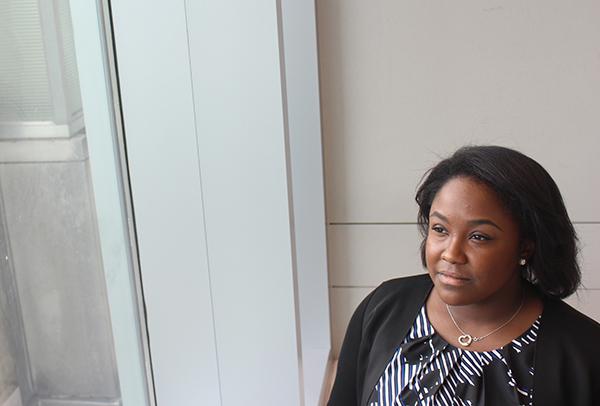Updated: Oct. 14, 2014 at 12:49 p.m.
Domestic violence reports on campus were triple the number reported at most D.C. schools last year.
The University logged 18 reports of domestic violence in 2013, according to its annual security report. This year’s report was the first to include the number of domestic violence, dating violence and stalking cases after the federal government mandated that schools across the nation begin reporting them.
American University recorded six cases of domestic violence last year, while Catholic and Georgetown universities each reported one. Howard University has not yet released its data online. With more than 25,000 students, GW has the largest total enrollment among the schools.
Senior Associate Vice President for Safety and Security Darrell Darnell said while he is glad people are reporting instances of violence, he hopes that educational programs at the University will bring the numbers down.
“In the particular case of domestic abuse, hopefully coming up with education programs and teaching people how to deal with the issues, that may lead to that,” he said. “There are ways to deal with that in a civil and respectful way and that it doesn’t need to lead to putting your hands on somebody.”
Darnell added that the programs would focus on teaching students that domestic violence is a crime.
“At the same time it’s good to see people are reporting this and hopefully they’re getting the assistance and the help that they need,” he said.
The University uses events like Colonial Inauguration to inform future students about topics like consent and dating violence. GW also requires new students to complete an online program, MyStudentBody, which covers drugs, alcohol and sexual assault.
The Clery Act, which went into effect in 1990, mandates schools report the number of crimes that are reported on campus each year. The Violence Against Women Act, which was updated in 2013, added an extra layer to the reporting process, requiring colleges to report dating violence, domestic violence and stalking statistics for the first time this year.
GW had only one reported instance of dating violence in 2013, and 12 reports of stalking. American University had almost double the number of reported stalking incidents as GW, and one of the highest number of reported dating violence incidents of the D.C. schools.
The reauthorized Violence Against Women Act also requires colleges and universities to outline their policies regarding domestic and dating violence, as well as give students a list of resources they can use if they experience those types of abuses.
Darnell said the University “will continue its existing programs and make adjustments based on best practices in the field of preventing domestic abuse.”
Carole Lieberman, a forensic psychologist who specializes in domestic violence and sexual harassment, said many domestic violence victims on college campuses don’t come forward, fearing that their report won’t stay confidential.
Sexual assault and dating violence are some of the most underreported crimes across the country, with an estimated 60 percent of sexual assaults not reported to the authorities.
“If they report it and it gets out, then others are on campus will isolate them,” she said. “Especially because the perpetrator will be telling his side and claiming that they’re making this up.”
GW offers students websites to report violence and sexual assault. HAVEN brings together campus resources like the University Counseling Center and the Sexual Assault Response Team in one place online, and the CARE Network allows students and faculty to submit anonymous reports about students who may be in danger.
The University also holds bystander intervention trainings on campus and offers programs like George’s Heroes, which encourages students to speak out against domestic and dating violence. Campus safety advocate S. Daniel Carter said those efforts can help change attitudes toward domestic violence.
“Structures that offers primary prevention and bystander intervention are designed to drive cultural change and change the cultures on each individual campus,” he said.
Student organizations on campus say they are taking charge of the conversation about domestic violence. Kheri Freeman, the president of the Black Student Union, said the group hosted a forum last week about the perception of domestic violence in the media.
“One of the things of utmost importance is opening up the discussion and letting people know it’s OK to talk about, it’s more proactive if you do talk about it,” she said.
Freeman added that the Black Student Union plans to organize another event with Students Against Sexual Assault.
Brian Pinero, director of digital services for the National Domestic Violence Hotline, said reporting numbers is a “step in the right direction” for colleges, but universities nationwide can help start more conversations to change campus cultures.
“We need to come up with a way for the student body to solve this problem,” he said. “We need to start having a discussion about consent.”







